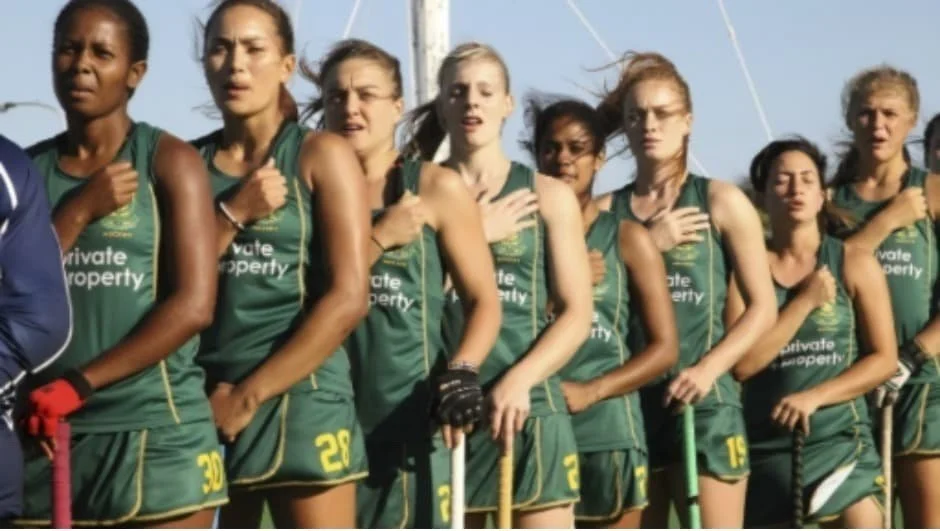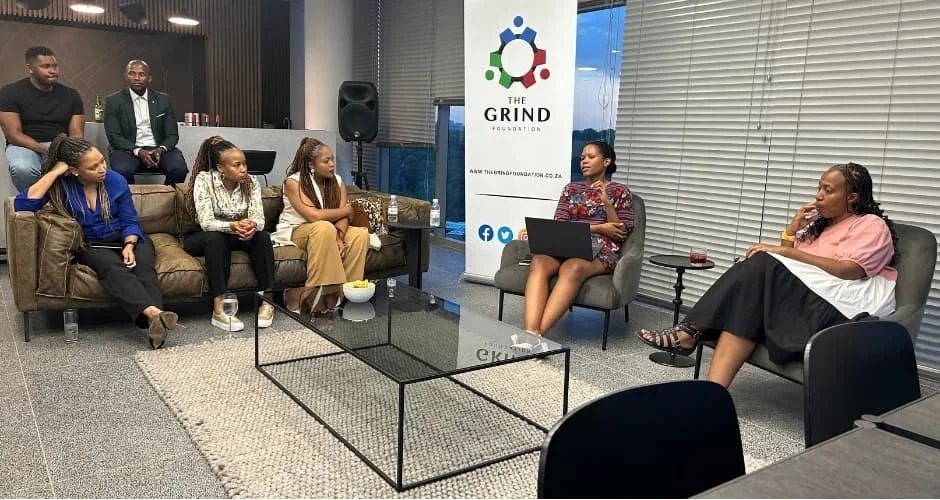The Grinding Issue: July 2024 Edition
Sports and the development of the African Child!
The Paris 2024 Summer Olympic Games are upon us and national pride across member countries of the International Olympic Committee (IOC) is reaching fever pitch. As I write out these words, I am reflecting on our past athletic heroes and heroines. Josia Thugwane, the first black South African to win a gold medal in Atlanta 1996. The battles that Caster Semenya had to endure in claiming her place on the world stage. Who can forget the world record shattering performance of Wayde Van Niekerk in the 400m race in Rio de Janeiro in 2016. Everyone of their triumphs tells a story about the human endeavour to achieve greatness and have the athletes’ names etched in the history books.
Sport participation is more than athletic excellence, it develops skills and characteristics that are required in a well-functioning community. Teamwork, discipline and resilience to highlight a few. There is also the health component and the development of the human body to be able to function daily. As per the World Health Organization (WHO) Sport for Health Program, “regular physical activity helps prevent and treat noncommunicable diseases (NCDs) such as heart disease, stroke, diabetes and breast and colon cancer. It also helps prevent hypertension, overweight and obesity and can improve mental health, quality of life and well-being.”
So, at its core, sport participation is a story about the development of a society.
Wayde Van Niekerk had access to a mentor/coach, access to facilities and general exposure to a performance-driven culture. Yes, individual hunger and talent were crucial ingredients to his success, but the ecosystem delivered the opportunity. It is at this point that I ask that we look at the status quo of sports participation at our schools for the average South African child.
In June 2020, the Ministry of Sport released the Eminent Persons Group’s (EPG) annual report about transformation. The report highlighted worrying figures about school sports participation. “Less than 10% of the 25 000 schools participate in sport and the Minister (Nathi Mthethwa) emphasised that this needs major improvement,” That is a staggering and woeful statistic that is an indictment on the quality of South Africa’s broader education ecosystem.
Many of our professional sporting bodies rely on the schooling system to supply talented athletes that are well trained in body, mind and character. Rugby, cricket, hockey, aquatics and athletics, to name a few, traditionally have structures feeding into the schooling ecosystem and facilitating the continuous development of competitive athletes. If only 10% of SA schools participate in sport, it means the above-mentioned sports are fishing in a very limited talent pool, meaning that majority of potential stars do not even get out the starting blocks because of a lack of exposure.
Given that majority of the 10% participating schools are historically white schools that are characterised by higher LSM communities, it means the majority of black children in this country are not participating in any sports. How then will the various transformation targets be met if the grassroots numbers are non-existent?
“Of the 19 federations which were audited by the EPG, only nine had achieved 50% of more of prescribed targets, including cricket, football, netball and rugby. Of the 19 federations which were audited by the EPG, only nine had achieved 50% or more of prescribed targets, including cricket, football, netball and rugby.” – The Citizen 23rd April 2019.
In a study ‘Sports and Child Development’ by Christina Felfe, Michael Lechner and Andreas Steinmayr, they observed the following:
Participation in sports clubs during childhood has strong effects on children's health, education and behaviour.
Children also benefit from participating in sports activities in terms of their overall performance in school and behaviour: the overall measures of school performance and behaviour, expressed by the strength and difficulties score, both improve.
“Our results indicate positive effects of participation in sports on children's health, education and behaviour: overall, children's school grades and behaviour, in particular the relation to their peers, improve substantially.” - by Christina Felfe, Michael Lechner and Andreas Steinmayr,
Income has often been identified as a major contributor to sports participation at school level across the globe. Unfortunately, there is not much credible data to reflect on the specifics of the SA dynamics, so I have turned to the US where data is readily available.
In An EducationWeek article by Maya Riser-Kositsky & Holly Peele - July 30, 2021 | Updated: September 28, 2022, they presented that children from low-income families are much less likely to play sports than those from higher-income families, according to data on children ages 6 to 17 from the National Center for Health Statistics’ 2020 National Health Interview Survey.
“Around 31% of children ages 6 to 17 in families with incomes below the federal poverty level played sports, compared to 50% of children in families with incomes between the federal poverty level and four times it, and 70% of children in families with incomes over four times the federal poverty level.”
Increased women participation in sports in South Africa can go a long way in addressing the goal to achieve gender equality and rid our communities of the ills suffered by the women in SA. Exposing girls from a young age to athletic excellence will assist in building self-confidence while changing how boys engage with girls as equals in society.
As the Grind Foundation we should set some of our ambitions on the holistic development of the black child through better access to co-curricular programs. Sport participation plays an important role in the development of our children and our communities. We have partnered with St Matthews School in Soweto for music and art exposure through sponsoring music instruments and art material. We need to investigate how we can partner with sporting programs for the black child to extend our social impact efforts.
Events and Fundraising Calendar
Immediate Upcoming Events
Strategy Session – 31 July 2024
Event Calendar (Indicative Dates)
Annual General Meeting – 31 August 2024
Golf Day – 25 October 2024
Grind Leadership
Board Of Trustees
Chairperson – Du Mhango
chairman@thegrindfoundation.co.za
Secretary General – Sihle Godden
secretarygeneral@thegrindfoundation.co.za
Treasurer – Nyiko Mageza
treasurer@thegrindfoundation.co.za
Member Affairs – Hamilton Ndlovu
ChiefWhip@thegrindfoundation.co.za
Head of Projects – Marjorie Mlambo
projects@thegrindfoundation.co.za
Cape Town Representation – Sandile Malinga
regionsCPT@thegrindfoundation.co.za
Subcommittees
Media and Communications
Head - Semadi Motau
Members – Catherine Riba, Katlego Pule, Madikana Phalafala, Mhlengi Kunene, Mothei Mphuthi, Yalusa Jongihlati, Lucky.
Projects
Head - Marjorie Mlambo
Members – Mmeli Danisa, Linda Nyembezi, Marjorie Mlambo, Mzwandile Riba, Ore Megbope, Refiloe Maruta, Thandeka Skosana, Warren Miller
Events and Fundraising
Head - Du Mhango
Members – Warren Miller, Thapelo Masilela, Sthe Zwane, Sandile Malinga, Maredi Mampuru, Asmeralda Motau, Nyiko Mageza, Jessica Fhulu Mamelasigidi, Grace Mahlomotja, Sihle Godden








